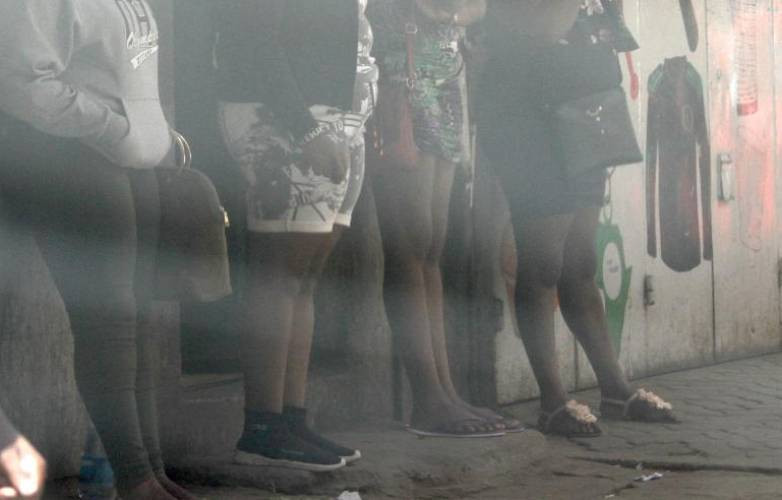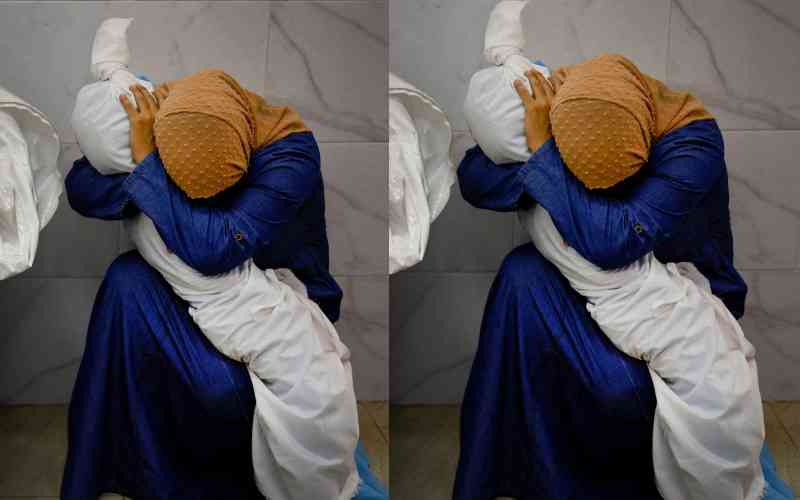Title: A Walk at Midnight
Author: Catherine Wanjohi
Publisher: Life Bloom Services International
Reviewer: Goro wa Kamau
A Walk at Midnight is the story of the author’s journey with sex workers as she attempts to rehabilitate and inspire them with a new sense of dignity and wholesomeness. It is a journey driven by a need to give these abused women and girls a second chance in life.
It all begun quite dramatically in 2002 when the author, then a principal in a girls’ secondary school found a letter from a parent addressed to her on her desk. The parent who was HIV-positive wrote: “Teacher, you’ve been very kind to me and my girls and I am sorry I wasn’t able to attend the parents meeting last weekend ... I have been sick ... I don’t know how long I will live. Should I die soon, I will live my daughters with you.” Why would a dying woman have the confidence to write such a letter to her daughters’ school principal?
The letter was traumatising. Now Wanjohi understood why the youngest of the woman’s daughters had asked for permission to go to hospital in Nairobi and why she had attempted suicide when the permission was denied.
She arranged visit the ailing woman together with her daughter. After the visit, the author wondered how many of her students may be similarly affected by HIV/Aids only to discover there were several of them. The author responded by supporting the establishment of peer counselling clubs in her school. Catherine Gathoni, the girl who had just recently attempted suicide, became one of the most active participants in these clubs. She has told her story in the book Can Scars Become Stars?
The author learnt from the girls in the peer counselling clubs about the kind of homes most of her students came from — broken homes mostly headed by poor women for whom paying school fees was a struggle. In addition, those mothers who were infected with HIV/Aids had to deal with problems of social stigma. From then on any time a female parent came to see her she encouraged her to share what other story she might be holding back.
“The stories were often about negligent and irresponsible husbands, early marriages, poverty and single parenthood — voices of what really happened at home, in the family, in our society. Issues that could not be addressed in the narrow confines of the school compound.”
This realisation culminated in the author’s resignation from her school principal’s job. She founded Life Bloom Services International, an organisation through which she started working with sex workers.
Attempted suicide
At the start, it was a baptism of fire, a personally traumatising experience. A Walk at Midnight documents the lives of numerous abused women and girls who are forced to work on the streets of our cities and towns peddling their flesh in an effort to feed their children and often-poor families. Abused and stigmatised, most of these women have to be high on alcohol and drugs in order to numb their minds and conscience against the violence meted on them by their customers and law enforcement agencies.
The book is full of touching anecdotes from the lives of these abused women. Beyond the fear of the consequences of reckless, sometimes unprotected sex, their daily encounters with criminals and other shadowy characters that prowl the sex dens and the violence that accompanies their lives, these women are our ordinary sisters. Like all mothers, they want a better life for their children.
The author, a co-traveller with these women in their struggles, documents how her Life Bloom International Services works closely with Government agencies such as hospitals, prisons, the Provincial Administration, the Church and owners of bars and lodgings in Naivasha and other places where her organisation is active. She ensures the sex workers get access to medical and spiritual care as well as dignified treatment from such agencies as the police when they, inevitably, get in trouble. Through her organisation, the author teams up with well-wishers to train the women in leadership and counselling, trade and vocations, reproductive health, peace-building, basic and computer literacy among a range of other employable skills in a bid to give the sex workers a second chance in life
Stay informed. Subscribe to our newsletter
 The Standard Group Plc is a
multi-media organization with investments in media platforms spanning newspaper
print operations, television, radio broadcasting, digital and online services. The
Standard Group is recognized as a leading multi-media house in Kenya with a key
influence in matters of national and international interest.
The Standard Group Plc is a
multi-media organization with investments in media platforms spanning newspaper
print operations, television, radio broadcasting, digital and online services. The
Standard Group is recognized as a leading multi-media house in Kenya with a key
influence in matters of national and international interest.
 The Standard Group Plc is a
multi-media organization with investments in media platforms spanning newspaper
print operations, television, radio broadcasting, digital and online services. The
Standard Group is recognized as a leading multi-media house in Kenya with a key
influence in matters of national and international interest.
The Standard Group Plc is a
multi-media organization with investments in media platforms spanning newspaper
print operations, television, radio broadcasting, digital and online services. The
Standard Group is recognized as a leading multi-media house in Kenya with a key
influence in matters of national and international interest.








